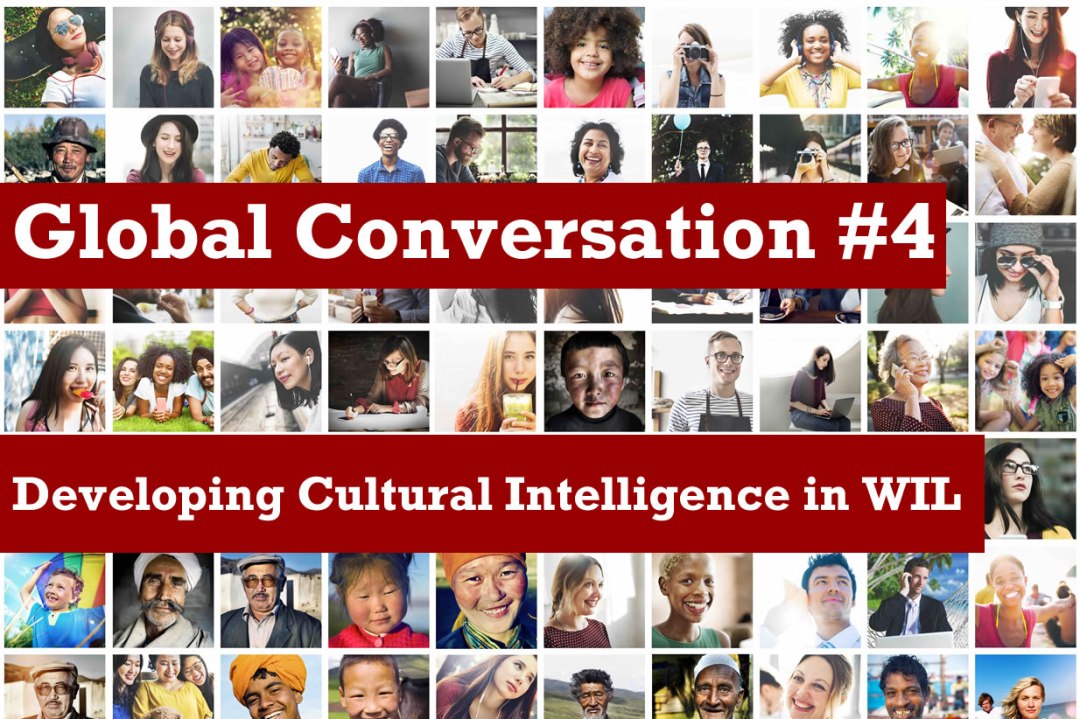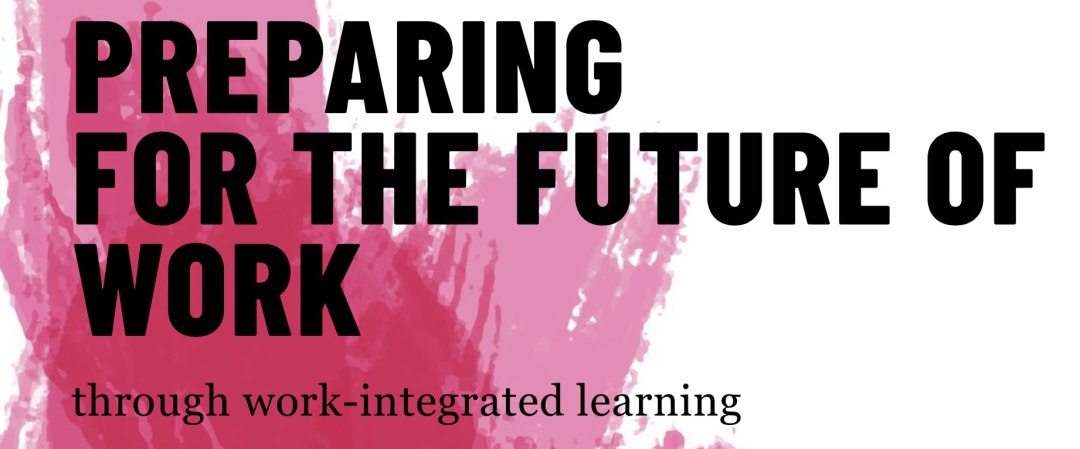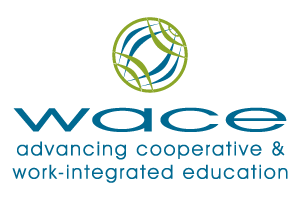AUSTRALIA

AUSTRALIAN COLLABORATIVE EDUCATION NETWORK (ACEN)
- ACEN work-integrated learning questions included in National Graduate Outcomes Survey – The online survey gathers data from graduates about their WIL participation in WIL, employability related activities as they relate to employment, four to six months after completing their studies.
- ACEN was part of a roundtable consultation with the federal government on their new funding package to enhance job-ready graduates
- ACEN Virtual WIL Summit – scheduled for 27 & 28 October 2020, has over 600 participants registered.
- ACEN WIL Awards 2020 – Finalists have been announced, with winners to be announced at the Virtual Summit.
- ACEN and ACDS joint discussion paper on NPILF released – The Australian Government’s Job-ready Graduates package highlights the importance of Science, Technology, Engineering and Mathematics for the future of Australia. The package provides $900 million to support the National Priorities and Industry Linkage Fund (NPILF), which is designed to foster the creation of ‘job-ready’ graduates through university-industry engagement. There will be many proposals around how universities can spend their NPILF allocation. How do we decide which plan is most likely to benefit Science students and graduates? In this joint discussion paper, ACEN and ACDS present a review of the literature on university-industry partnerships and Science Work Integrated Learning (WIL). Our goal is to enrich the national discussion on these topics and assist universities in their decision-making around NPILF expenditure.
Franziska Trede
President, ACEN
CANADA

CO-OPERATIVE EDUCATION AND WORK-INTEGRATED LEARNING CANADA (CEWIL)
CEWIL continues to work with our members from across the country as we work through both recovery efforts for COVID-19 and a second wave that we are currently experiencing in Canada. We continue to collect “pulse” data from our post-secondary members monthly – according to our most recent survey, completed at the end of September, the September – December placements are running 19% behind where we were at this time last year. While the majority of placements reported are for co-operative education programs, other types of WIL were also included from 46 WIL programs at 36 institutions. Additionally, we have seen a 19% decrease in co-op job positions (data from 17 institutions) and a 42% decrease in on-campus career centre job boards. We continue to collect this data to help inform our membership of a pan-Canadian picture of the market, as well as continue to advocate to the federal government for support during a difficult labour market.
Additionally, CEWIL has recently released a call to action on Equity, Diversity and Inclusion where we are currently establishing an EDI committee and an advisor to the board, along with other initiatives. We are hosting complimentary EDI webinars for all our members and guests – past recording are available on our website and future sessions are open for registration. CEWIL has also been hosting webinars on WIL Research, which can be accessed by non-members for a small fee.
Co-operative Education and Work-Integrated Learning (CEWIL) Canada in conjunction with the International Journal for Work-Integrated Learning is calling for expressions of interest for a Canada-specific issue of the journal. The deadline is November 9. More information available here.
Please visit our website for more information. Wishing you continued good health and wellness as we all continue to navigate these uncertain times.
Cara Krezek
President, CEWIL Canada
NEW ZEALAND

WORK-INTEGRATED LEARNING NEW ZEALAND (WILNZ)
WILNZ is pleased to be one of the sponsors of the two Special Issues of IJWIL focused on responding to COVID-19. A big thank you to the editorial team (Karsten, Judene and Anna, Yvonne, and Diane) for their efforts to get these published in a record time and for coordinating the input from the WIL community. Authors and reviewers also worked in record-quick time to meet the time-frame on this highly topical subject. The two issues of the journal certainly provide scholarly discussion and research-informed insights into the impact, challenges, and responses to COVID-19.
The Executive Board has recently developed the WILNZ Strategic Action Plan for the next three years. We are excited about the opportunities WILNZ has to provide leadership for the advancement of practice and research in WIL and support for the network that sits at the heart of WILNZ. We look forward to working with WACE and other National Associations to advance WIL globally.
Planning is well underway for the WILNZ conference in Hamilton (29-30th April 2021), co-hosted by the University of Waikato and Wintec. We are hoping our (very) tight border restrictions might be relaxed enough to at least allow our neighbours in Australia to attend.
CONGRATULATIONS TO DR. KARSTEN ZEGWAARD & PROFESSOR RICHARD COLL
The 2020 AGM instituted the award of Fellow of WILNZ. This award is for outstanding academic contribution to the Work-Integrated Learning community on recommendation from the Executive Board of Work-Integrated Learning New Zealand Inc and approved at a General Meeting.
The first recipients of the Fellow of WILNZ Award were Professor Richard Coll and Dr. Karsten Zegwaard. Richard and Karsten’s contribution to the WIL community has been significant both internationally and nationally, together and individually.
Kia kaha.
Jenny Fleming
President, WILNZ
SWEDEN
In these strange times some things still remain the same, one of those is the annual VILÄR-conference! So it’s with great joy we invite you to VILÄR 2020.
This year’s conference will however, due to ongoing restrictions, be in a hybrid format where you can chose to either participate irl at Bohusgården in Uddevalla or by virtual attendance. Please note that due to everyone’s safety we have a limit of maximum 50 participants at Bohusgården.
Please note that that you need to send in your abstract for review no later than 15th November.
This year’s keynotes are Annalisa Sannino & Roger Säljö!
More information on VILÄR 2020 here.
We hope to see you there,
The VILÄR committee
WACE INTERNATIONAL RESEARCH COMMUNITY (WACEIRC)

RESEARCH UPDATE
The WACE International Research Community is comprised of active WIL researchers, and those interested in being involved with WIL research activity. We run a peer-reviewed process for conference papers, select recipients for the WACE research grant, and organize professional development opportunities for emerging and established WIL researchers. We have an executive committee representing different geographic regions of the globe who provide updates from their regions on WIL research awards, grant recipients, upcoming grant opportunities, and WIL research-related events.
If you know of WIL researchers who are not yet connected to the WACE International Research Community, please contact Judene Pretti to find out how to become involved.
Dr. Judene Pretti
Chair, WACEIRC
WACE IRC EXECUTIVE
Executive Chair – Dr. Judene Pretti
Past-Executive Chair – Dr. Norah McRae
Chair Communications – Dr. Kylie Twyford
Regional Vice-Chair, Africa – Dr. Roelien Brink
Regional Vice-Chair, Americas – TBC
Regional Vice-Chair, Asia – Dr. Yasushi Tanaka
Regional Vice-Chair, Europe – Dr. Kristina Johansson
Regional Vice-Chair, Oceania – Dr. Karsten Zegwaard
Co-Chairs, Grants and Awards – Dr. Antoine Pennaforte and Dr. Jenny Fleming
Co-Chairs, Development – Ms. Judie Kay and Dr. James Stellar
INTERNATIONAL JOURNAL OF WORK-INTEGRATED LEARNING

IJWIL SPECIAL ISSUE: RESPONDING TO COVID-19, INNOVATIVE PRACTICES OF WIL
The International Journal of Work-Integrated Learning (IJWIL) had a tremendous response to the call of expressions of interests for a Special Issue related to the impact of COVID-19 on WIL. With such a great interest, IJWIL expanded the scope of the Special Issue. Therefore, IJWIL is pleased to announce the simultaneous publishing of TWO Special Issues related to the impact of the COVID-19 pandemic on the practice of WIL.
- Volume 21, Issue 4, Special Issue. Responding to COVID-19: Understanding and conceptualizing challenges for work-integrated learning
- Volume 21, Issue 5, Special Issue. Responding to COVID-19: Exploration and expansion of good practice of work-integrated learning
These Special Issues are now accessible on the IJWIL page.
The Special Issues will greatly inform the COVID-19 discussions for WIL and are, individually, the largest Issues that IJWIL has published, with 70 authors contributing. IJWIL gratefully acknowledges the authors for their interest and effort in writing COVID-19 related articles within a short timeframe and during a difficult time. We also thank the IJWIL Copy Editors, Yvonne Milbank and Diane Bushell for their tremendous effort of copy editing two large issues at short notice, and we gratefully acknowledge the Work-Learn Institute at the University of Waterloo, University of Waikato, ACEN, and WILNZ for the sponsorship of the two Special Issues.
Kind regards and good health,
Dr. Karsten Zegwaard, Editor-in-Chief
Dr. Judene Pretti, Associate Editor
Dr. Anna Rowe, Associate Editor
GLOBAL CONVERSATIONS

GLOBAL CONVERSATION # 4: DEVELOPING CULTURAL INTELLIGENCE IN WIL 7TH / 8TH DECEMBER 2020
With almost any region developing more of a global workforce, companies strategizing to develop a global presence, and a greater significance to anti-racism, equity, diversity and inclusion, there is a growing need to develop intercultural competence in both students and employers or WIL hosts.
In this interactive workshop, the practitioner aspects of the Cultural Intelligence (CQ) model for developing intercultural competencies will be introduced. Two workshops to accommodate different time zones available.
Karima Ramji Associate Director, International, Indigenous and Strategic Initiatives Co-operative Education Program and Career Services, University of Victoria, Canada
Shabnam (Shay) Surjitsingh Ivković, Manager – International Co-op Mobility Co-operative Education, University of Waterloo, Canada
More information and registration details for the next Global Conversation is available here.
PAST RECORDINGS
To view the recording of the previous Global Conversation (#3) on COVID-19 and Emerging WIL Research please click here.

GLOBAL WIL MODULES
Expressions of interest are now open for the first round of modules in. These modules provide WIL practitioners with the opportunity to undertake professional development online with colleagues from across the globe and will run from March to May 2021.
- Dimensions of Quality for Work Integrated learning
- Learning and Assessment in Work Integrated learning
The modules were developed and are presented by representatives of four national associations, including Australian Collaborative Education Network (ACEN), Co-operative Education and Work-Integrated Learning Canada (CEWIL formerly CAFCE), New Zealand Association of Cooperative Education (NZACE), The Vilar Network (Sweden), and have been running for 4 years with participants over eight countries from across the globe.
RESOURCE SHARING
NEW PUBLICATION

The University of Waterloo has recently published, Preparing for the future of work through work-integrated learning by Tara Stevens, Judene Pretti, and Norah McRae.
The future of work and how to best prepare for it is one of the biggest challenges currently facing governments, employers, educators, and policymakers. The fast-paced changes happening within the workforce were recently amplified by a global pandemic, forcing employers to completely re-think their organizational operations. This new reality has only enhanced the existing need to think critically about how to prepare new talent for the world of work today, and of the future.
This paper is a culmination of a review of 32 recent Canadian and international reports on the future of work. A synthesis of each report led to the identification of six major future of work trends.
SHARE YOUR NEWS

Do you have something you would like to share? A resource, some news, an award or achievement? Would you like to sponsor a WACE event?
If so, please contact the Judie Kay, Vice Chair WACE Partnerships and Programs via: programspartnershipsvc@waceinc.org
We’ve also made it easier to share this email with others. Use the forward icon below or share this newsletter via your social media channels.

